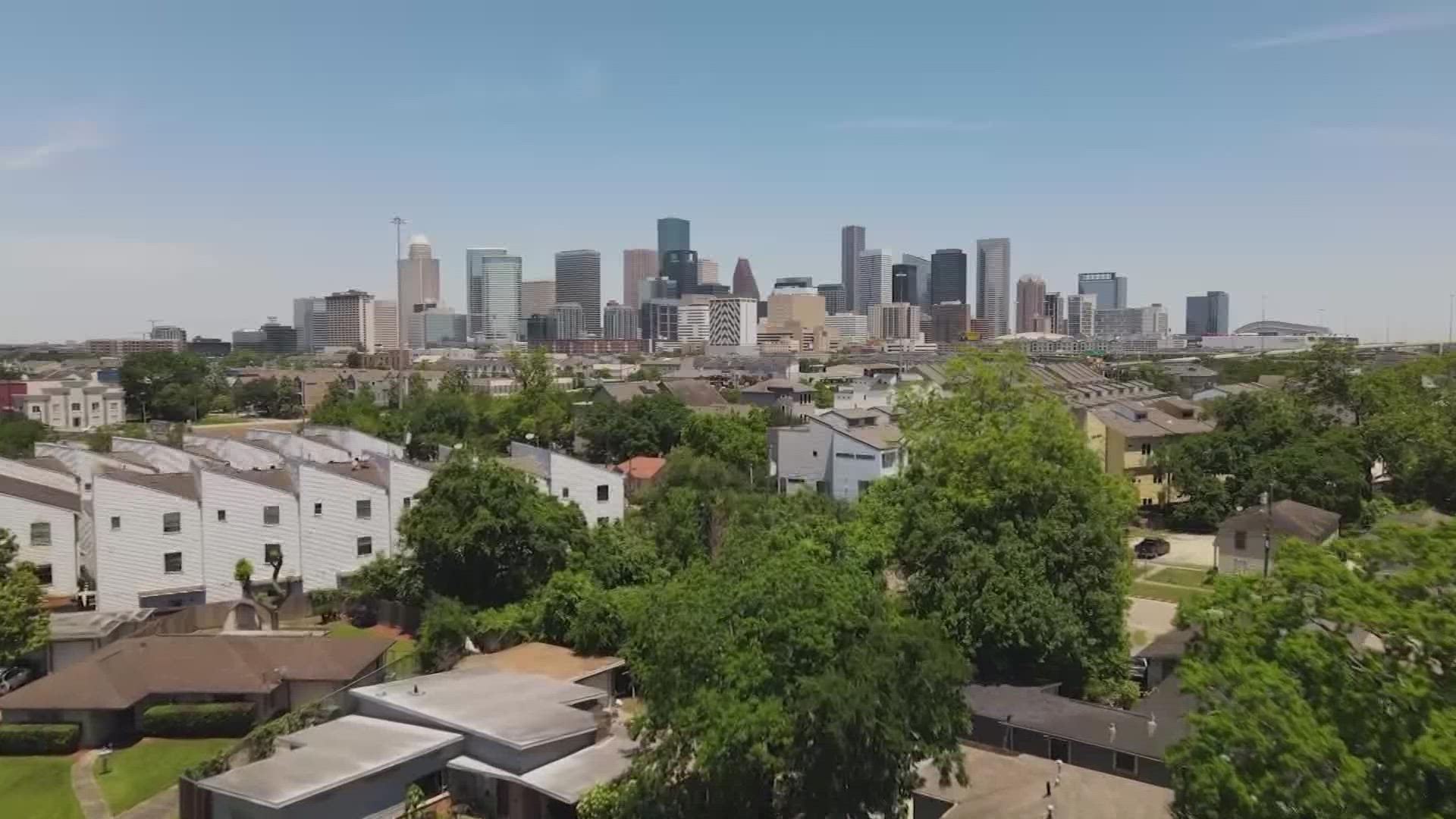HOUSTON — If it seems hotter in your neighborhood than others, it might not be your imagination.
There are pockets in Houston that can run several degrees hotter than surrounding areas due to the Urban Heat Island Effect.
“The Urban Heat Island Effect is a human-induced phenomenon in highly urbanized city centers,” explained KHOU 11 meteorologist Tim Pandajis.
“You’ve got a lot of high-rise concrete buildings, roads, sidewalks, impermeable surfaces, that absorb and store heat and can keep the surrounding area warmer for longer. We are talking 5 to 8 degrees warmer than what you’d find outside of other areas.”
The 3rd Ward is one of these hotter areas, which is why Houston native and Skyline Rotary Club member Ed Pettitt, is pushing for changes.
“I live in Houston's 3rd Ward neighborhood,” Pettitt explained. “Which is a neighborhood that’s been redlined and disinvested for decades. We don’t have access to the same green spaces and parks that other others have and that has resulted in us being hotter.”
Pettitt is currently working towards his Ph.D. in urban planning and environmental policy at Texas Southern University and hopes to bring equitable changes to his community.
“It has health effects. So, elderly folks and folks that have cardiac and pulmonary issues, they are more prone to heat stress and heat stroke,” he said.
Pettitt was part of a 2020 study by NOAH and the Houston Advanced Research Center about this effect, which mapped the temperatures through various parts of Houston.
“We took volunteers and we attached temperature sensors to their cars and they drove around the city,” said Pettitt. “What we found was that at the same time on the same day, there was a 17-degree difference between the hottest and the coolest part of the city.”
There are simple ways to reverse this effect.
“All we have to do is start having more green spaces,” said Pandajis. “We pave over everything. Planting trees, planting grass, painting [rooves and building tops white], and putting in green spaces.”
Pettitt and other Skyline Rotary Club members aim to transform donated vacant lots of land into parks and greenspace. Initially leading the effort was Rotary member Dakota Stormer, an environmentalist who had also founded the Footprint app that lets users track and reduce their carbon footprint. In 2021 Stormer died of lung cancer at age-26.
In his honor, Pettitt along with other Skyline Rotary Club members, friends and volunteers, adopted a spot along the Columbia Tap trail in the Third Ward and planted a grove of trees they've named The Dakota's Peace Grove.
“We want to make sure that people realize there are things we can do to cool down our neighborhoods because this isn’t just an anomaly… this is a fact of life now,” Pettitt said.
Pettitt has created a 3-D printed model city with digital projection simulations that demonstrate the effects of urban heat and how various solutions can bring the temperatures down.
The model is being displayed this week at the George R. Brown Convention Center as part of the Rotary International Convention House of Friendship.

